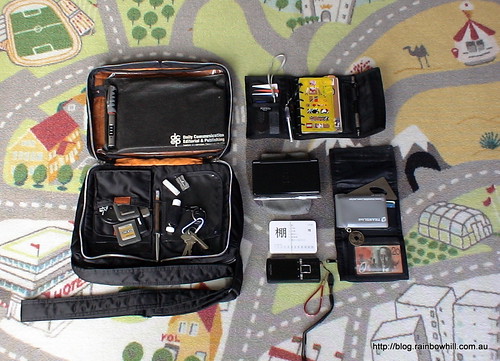
I'm trying to carry less.
I used to think using a traditional paper dictionary had a lot more going for it than an electronic dictionary. I'm now starting to believe that electronic dictionaries may be more useful. There are still a lot of pitfalls if you are just starting to learn Japanese, so I'd like to outline some pros and cons to help you decide what might be best for you.
Pros of using an electronic dictionary
- Touch Pen Input: A really valuable function available in a lot of modern electronic dictionaries that allows you to look up an entry visually. Even if you don't have very good handwriting most dictionaries will guess at the character and provide you with options.
- Light and easy to carry: You can carry both bilingual dictionaries and a monolingual dictionary in your pocket. Add to this functions like editable flashcards, quizzes and data transfer you can design your daily study around a single device.
- Hyperlinked entries: Some electronic dictionaries will allow you to skip between entries by selecting highlighted text. This helps with the process of discovery. Most will also have a history so you can track back without having to dog-ear a single page.
- Inbuilt flashcards: You'll never have to write your own flashcards again. Each flashcard is also linked to a full entry so you aren't limited by what you can fit on the back of a small rectangle of paper.
- Confusing Interface: Most electronic dictionaries are designed for Japanese students of English so the interfaces are written completely in Japanese. This can make it hard to learn how to use them if you have only a basic level of Japanese.
- Entries in Japanese: Definitions for all words are in Japanese, even when using the Japanese-English dictionary. You may be able to find examples of usage in English, but meanings are always expressed in Japanese.
- No Guide to Pronunciation: Entries in the English-Japanese sections contain examples of pronunciation for English words, but the converse is not true for Japanese.
- Writing can be difficult: If you are looking up the reading of a specific kanji that has a high stroke number it can be challenging to write each stroke in the correct order.
There will always be a place on my bookshelf for a good selection of Japanese dictionaries, they just might be collecting a bit more dust than they have in the past.
Thanks very much to my friends on Facebook for helping me out with some ideas for this post. Sometimes it's hard to see things from different perspectives. It's always good to hear what you think.
Are you making a decision about what kind of dictionary to buy? If you have bought a dictionary recently what helped you make your decision? Maybe you're using both electronic and hard copy dictionaries like I am, what works best for you?


